
Colorado DOT Awards Funds for Clean Transportation Projects
The Colorado Department of Transportation recently issued $17.3 million in grants to 11 local projects aimed at improving air quality along parts of the Front Range region of the state.
Home » News

The Colorado Department of Transportation recently issued $17.3 million in grants to 11 local projects aimed at improving air quality along parts of the Front Range region of the state.
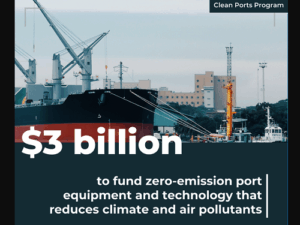
The U.S. Environmental Protection Agency recently issued $3 billion in grants via its Clean Ports Program to 55 port projects across 27 states and U.S. territories. [Above image by EPA]

The Massachusetts Bay Transportation Authority – a division of Massachusetts Department of Transportation – recently signed off on a $54 million plan to introduce battery-electric multiple unit or BEMU trains

The Federal Highway Administration recently issued $148 million in grants to 16 port projects in 11 states and Puerto Rico via the first round of a new $400 million program
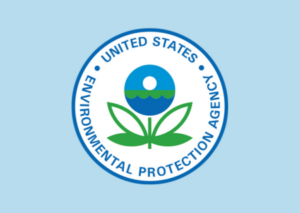
The Bipartisan Infrastructure Law (BIL) is transforming how New York City children get to school, accelerating the transition to zero-emission vehicles, and producing cleaner air for our communities.
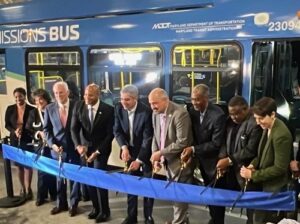
Governor Wes Moore (D), the Maryland Department of Transportation, and the Maryland Transit Administration (MDTA) recently launched a “Zero-Emission Bus Pilot Program” at the MDTA’s Kirk Bus division in Baltimore,

The U.S. Environmental Protection Agency (EPA) announced a series of settlements with companies that had illegally sold “defeat device” products throughout the United States that altered vehicle emissions control systems.

The Nebraska DOT is gathering public opinion on its proposed strategies for reducing transportation-related carbon dioxide emissions via an online survey. [Above photo by Nebraska DOT] That is the final

The Colorado Department of Transportation’s Division of Aeronautics wants to get its 76 public use airports ready for alternatively powered aircraft and the fuels they use. [Above photo by the

The Oregon Department of Transportation recently unveiled a website that tracks how the state’s public agencies are collectively reducing greenhouse gas or GHG emissions across Oregon. [Above photo by the

The U.S. Department of Transportation and Department of Energy recently released the Sustainable Aviation Fuel Grand Challenge Roadmap as part of what they dubbed a “government-wide strategy” for scaling up sustainable

The U.S. Departments of Energy, Transportation, Housing and Urban Development, and Environmental Protection Agency recently signed a memorandum of understanding or MOU to reduce greenhouse gas or GHG emissions associated

The U.S. Environmental Protection Agency plans to introduce stricter heavy-duty vehicle and engine emission rules starting in model year 2027. [Above photo by the Missouri DOT] The proposed standards would reduce emissions of

The governors of North Carolina and Connecticut recently issued executive orders that mandate the formation of “clean transportation” plans to reduce greenhouse gas or GHG emissions in their respective states.

EEAs recognize outstanding transportation projects, processes, and organizations that incorporate environmental stewardship into the planning and project development processes using FHWA funding sources.

The Colorado Transportation Commission proposed new transportation pollution reduction planning standards on August 16 that seek to cut greenhouse gas or GHG emissions from the state’s transportation sector while improving
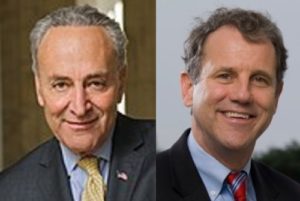
Two key Senate Democrats introduced a $73 billion plan on May 4 to transition the nation’s transit buses and vans to Zero Emission Vehicle or ZEV platforms. [Above photo: Sens.
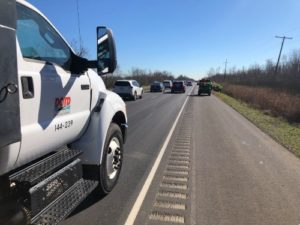
The Louisiana state government, which collects about $1.3 billion a year in taxes from the oil and gas industry, is studying whether alternative fuels and other environmental measures can help
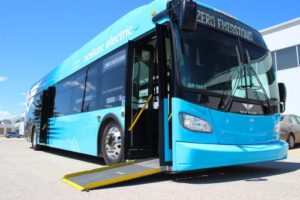
[vc_row][vc_column][vc_column_text]The Federal Transit Administration is making up to $180 million in competitive grant funds through a notice of funding opportunity for its Low or No Emission or “Low-No” grant program. [Photo courtesy of

[vc_row][vc_column][vc_column_text]Two 100 percent renewable energy contracts between the Massachusetts Bay Transportation Authority and BP Energy Company and Direct Energy LLC recently went into effect – reducing the agency’s carbon footprint

The states of Connecticut, Massachusetts, and Rhode Island, along with the District of Columbia, signed a memorandum of understanding or MOU on December 21 committing themselves to a “multi-jurisdictional program” to
Your one stop source of environmental information for transportation professionals.
"*" indicates required fields